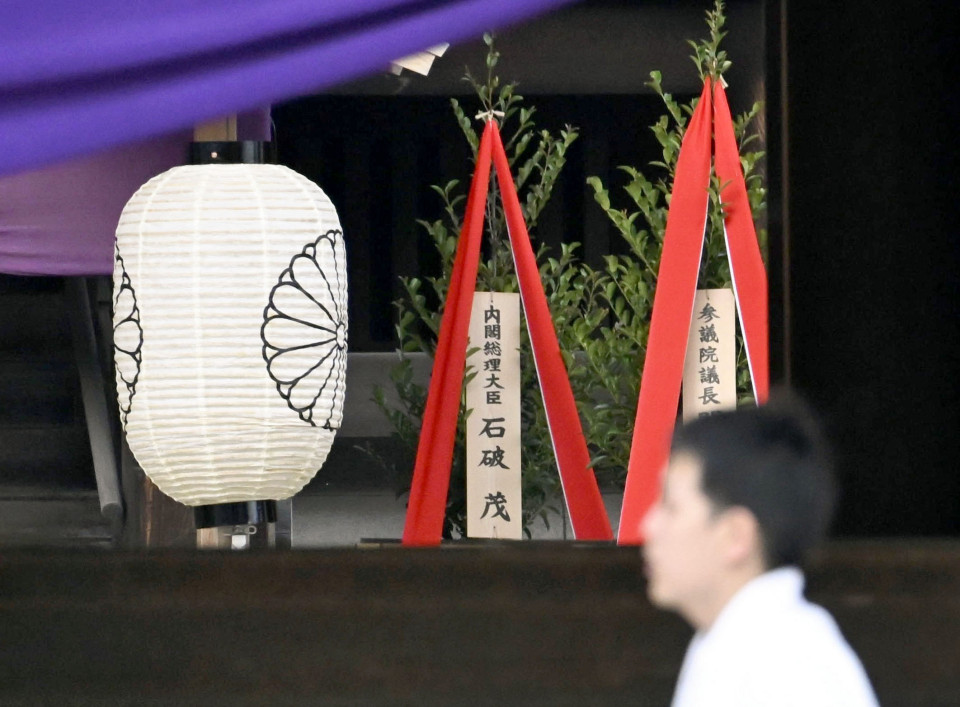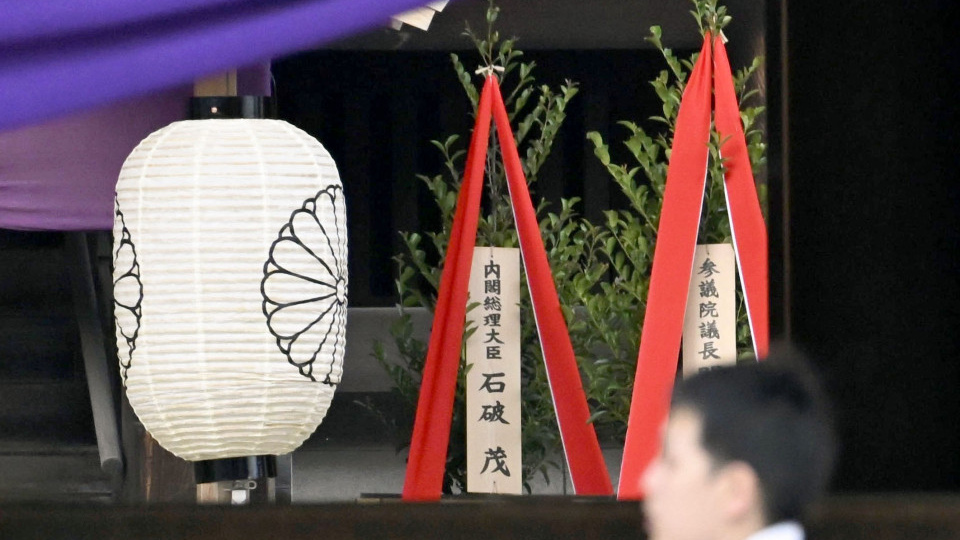Prime Minister Shigeru Ishiba sent a ritual offering to the war-linked Yasukuni shrine in Tokyo on Monday, as the shrine, seen by Japan’s neighbors as a symbol of its past militarism, began a three-day spring festival.
Ishiba, however, is not expected to visit the shrine during the festival, according to sources familiar with the matter, apparently because of diplomatic considerations at a time when Japan’s ties with China and South Korea have been improving.
Yasukuni honors Japan’s wartime leaders, convicted as war criminals by a post-World War II international tribunal, along with millions of war dead.

Photo taken on April 21, 2025, at the war-linked Yasukuni shrine in Tokyo shows the “masakaki” ritual offering sent by Japanese Prime Minister Shigeru Ishiba for its spring festival. (Kyodo)
Ishiba and his Cabinet ministers did not visit the Shinto shrine during its autumn festival last year, soon after he became prime minister in October. The prime minister sent a “masakaki” offering instead.
Past visits to the shrine by Japanese leaders, Cabinet ministers and lawmakers drew sharp rebukes from China and South Korea. Japan invaded a vast swath of China before World War II and colonized the Korean Peninsula from 1910 to 1945.
This year marks the 80th anniversary of the end of World War II and Ishiba has expressed his readiness to take a fresh look at why Japan went to war and draw lessons from it.
But he is not expected to issue a statement, unlike his predecessors who released Cabinet-approved documents on the 50th, 60th and 70th anniversaries, other sources said.
Yasukuni added wartime leaders including Prime Minister Gen. Hideki Tojo to the enshrined deities in 1978, stirring controversy at home and abroad. Tojo was executed by hanging for crimes against peace.
Related coverage:
Japan PM to forgo visit to war-linked Yasukuni shrine for spring rite


AloJapan.com